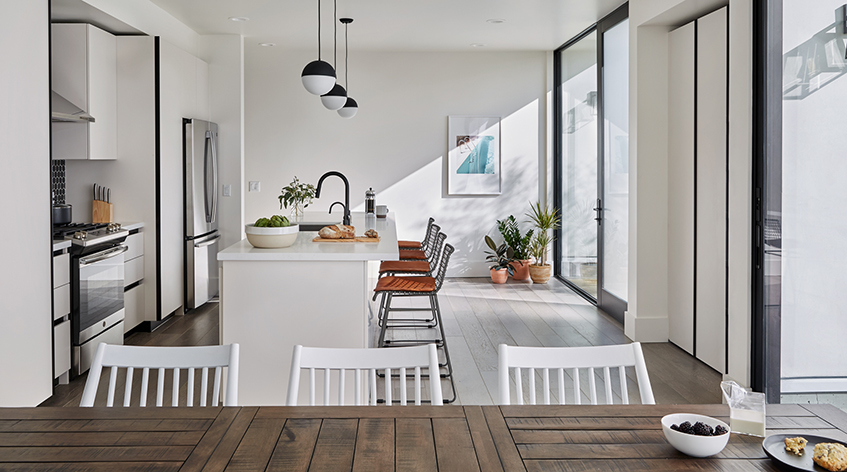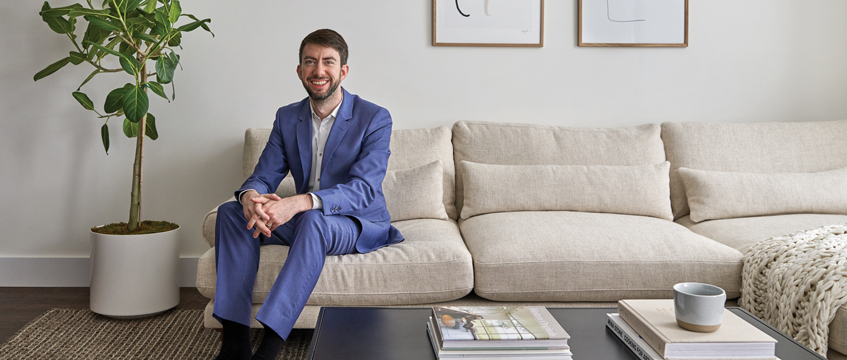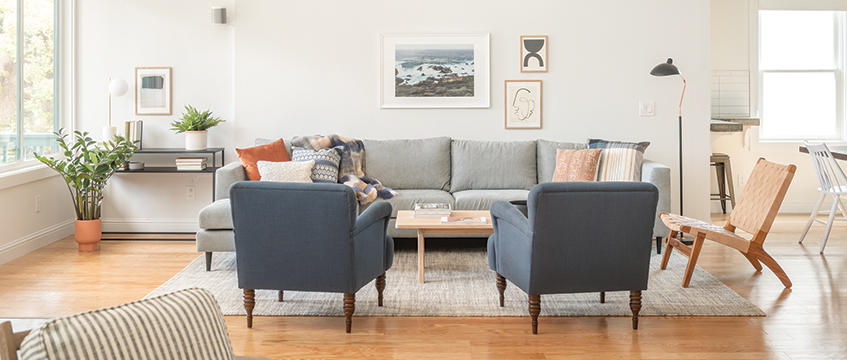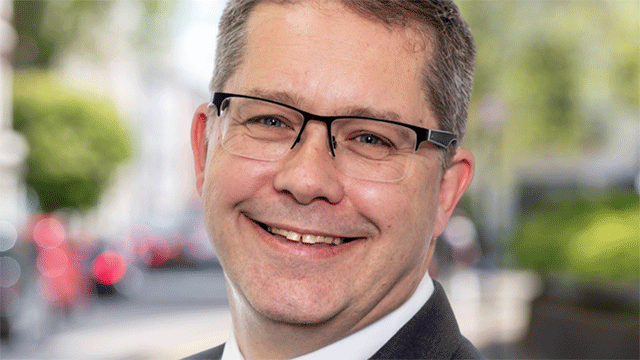With space in short supply in cities around the world and urban populations rising, finding quality housing at an affordable price is a growing problem for many.
In New York City, one platform is pioneering professionally-managed flat-sharing as a solution.
Common is the largest operator of co-living space in the US, offering large shared suites with private bedrooms.
The business, set up by Brad Hargreaves in 2015, has 1,000 bedrooms in 34 properties in seven cities, a confirmed pipeline of 10,000 bedrooms, and ambitious growth targets.
“What we do as a co-living operator is bring people together and lease big shared units,” says Hargreaves. “Our developments are typical residential buildings that happen to be leased to roommates.”
Living in shared space is becoming increasingly common. Some 80m people in the US live in shared accommodation and in the UK this figure is growing exponentially as the cost of owning – and renting – becomes out of reach for many individuals.

How it works
A typical Common dweller signs a six-month lease for their own private room and access to a shared kitchen, dining room, bathroom and garden. Common stocks the apartment building with basic supplies, cleans all the shared spaces, does all the maintenance and provides free WiFi.
“We furnish all the units, we provide shared kitchen and bathroom supplies so that people don’t have to fight over who is going to buy the toilet paper, and we have a technology layer that makes things like splitting bills, paying rent and requesting maintenance really simple and easy,” says Hargreaves.
Self-contained, single-room occupancy is banned in the US and a by-product of this is that doors cannot be locked from the outside, much like a typical flat-share.
Rents range from $945 to $2,275 (£735-£1,770) per month for co-living apartments at an average of 12 sq m in a five-bedroom suite or a standard apartment. “In cities where people expect a little bit more space those rooms will be larger, in New York or San Francisco they might be smaller,” says Hargreaves.
The operator launched in Brooklyn five years ago with a 19-bedroom conversion of four shared suites. Today its 13,000-bedroom portfolio stretches across 20 cities, and Hargreaves has his eye on international expansion.
He says he is in talks with a number of local developers in London and other UK cities.
New York City is the most expensive place to rent, according to CBRE’s 2019 Global Living report. But London is catching up. Last year, rents grew by 6.1% in London, compared with 1.4% in New York City.
“It’s a no-brainer for us,” says Hargreaves. “The UK is facing a lot of similar challenges to major US cities. London, in particular, is facing a housing affordability crisis. Rent growth is outpacing wage growth, you have a lot of people delaying marriage, single folks living in cities. The need for co-living is real.”
Growing European market
According to JLL, Europe’s co-living sector is set to triple in size over the next two years to more than 20,000 bedrooms.
The sector is dominated by The Collective in the UK, but significant growth of the pipeline is expected to come from new entrants such as Common, as well as residential, student and hospitality developers expanding into the sector.
Common is looking to secure investment and partner with local developers on purpose-built shared-living assets. Hargreaves won’t share specifics on location or assets, but he is thinking at-scale.
“London is a similar size to New York, where we are targeting a minimum of 10,000 beds. Certainly London can support a similar scale.”

The UK expansion would also support Common’s global operations as a tech platform for its residents. “We have the idea that we can build a team in London and they can give us more hourly coverage in the US, and vice versa.”
However, co-living in the UK is still in its infancy and the business model has yet to prove itself here. The Collective launched its first scheme in 2016 but has struggled to secure planning consent for its long-stay schemes, while WeWork’s WeLive, which announced its intention to launch in the UK in 2015, has failed to get off the ground.
A major barrier is the lack of recognition of self-contained co-living bedrooms as a residential use class in the planning system. It forces developers into the sui generis bucket, often seen as second-class to residential development and subject to planning committee preferences and politics.
Common’s model may be closer to traditional flats, but it is still co-living, and as discussions progress with potential partners, Hargreaves is learning the nuances of the planning system.
“It is very bespoke in the UK. My understanding is that much of this is a negotiation with the local planning authority, and you have something like 30 local planning authorities in London,” says Hargreaves. “That is not the way it works in the US.”
The operator is also having to adapt to differences in residential development funding. In the US, developers typically fund the build, but here investors are needed from day one. And as Common seeks to woo private equity, it faces competition from developers and operators piling into the sector.
The Collective recently announced plans to raise £650m in a tie-up with DTZ Investors, and Galliard, HUB and Downing Developments, each have plans for major co-living schemes they will be looking to finance.
Regardless of the hurdles that planning, funding and competition could place in the way of the firm’s expansion into the UK, Hargreaves remains confident that his style of co-living could become just as common in the UK as it is in the US.
Who is Brad Hargreaves?

Brad Hargreaves launched Common in 2015 with a vision to use technology and branding to deliver professionally managed flat-sharing. He was inspired by his own experiences renting in New York City and background in online tech start-ups.
In 2019, Common joined forces with Tishman Speyer to launch Kin, a tech-driven residential rental offering for families, with shared spaces and communities managed through the app.
Previously, Hargreaves co-founded global education provider General Assembly and expanded the business to the UK. Today it has 20 campuses and 35,000 global alumni.
The serial entrepreneur also founded social casino AvCom, previously known as Free Awesome, which was acquired by MGT Capital in 2013. His first company, Aloysius Properties, specialised in reselling antique furniture from universities.
As well as launching a number of websites focused on gaming, education and entrepreneurial tools, Hargreaves also invests in non-conventional venture deals.
To send feedback, e-mail emma.rosser@egi.co.uk or tweet @EmmaARosser or @estatesgazette











